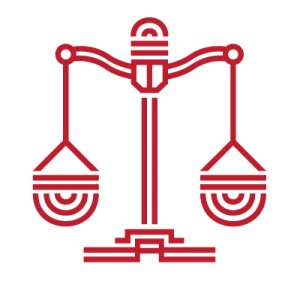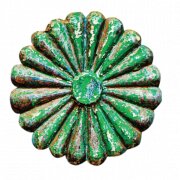Best Mining Law Lawyers in Midrand
Share your needs with us, get contacted by law firms.
Free. Takes 2 min.
List of the best lawyers in Midrand, South Africa
About Mining Law in Midrand, South Africa
Mining Law in Midrand, South Africa, regulates the exploration, extraction, and management of mineral resources within the region. The legal landscape is largely defined by the Mineral and Petroleum Resources Development Act (MPRDA), which positions the state as the custodian of the nation’s mineral resources. Midrand, due to its proximity to Johannesburg and Pretoria, is located within Gauteng Province, an area with a rich mining heritage. Mining activities in or near Midrand, though less prevalent than in some mining-heavy provinces, still require strict compliance with legal standards to ensure that environmental, social, and economic factors are balanced and respected.
Why You May Need a Lawyer
There are various situations where hiring a mining law lawyer in Midrand is advisable. These include negotiating mining rights or permits, resolving land or community disputes related to mining projects, obtaining regulatory approvals, or dealing with environmental compliance issues. Lawyers also assist with interpreting contractual agreements, handling mergers and acquisitions in the mining sector, representing clients in administrative or legal proceedings, and advising multinational corporations or local partnerships. Whether you are an investor, a landowner, a company, or a community stakeholder, having legal expertise on your side can help you navigate complex regulatory requirements and protect your interests.
Local Laws Overview
Mining Law in Midrand is shaped by several key statutes and regulations. The most important among these is the Mineral and Petroleum Resources Development Act (MPRDA), which sets out the framework for mineral rights, prospecting, and mining permits. The National Environmental Management Act (NEMA) governs environmental authorisations and rehabilitation after mining activities. Other relevant laws include regulations regarding Broad-Based Black Economic Empowerment (BBBEE), occupational health and safety laws, and municipal zoning laws. These laws collectively address issues such as license acquisition, community consultation, land access, water use, and environmental protection, all of which are particularly relevant in the Midrand context where mining operations must coexist with extensive urban and peri-urban development.
Frequently Asked Questions
What permits or licenses are required to engage in mining in Midrand?
A prospecting or mining right, issued under the MPRDA by the Department of Mineral Resources and Energy (DMRE), is required. Additionally, environmental authorisation under NEMA and water use licencing may be necessary.
How does the state’s custodianship of minerals affect private property owners?
The South African government owns all mineral rights, meaning landowners do not automatically have the right to mine minerals found on their land. Interested companies or individuals must apply for rights from the state and consult with the landowners.
What is community consultation and why is it important?
Applicants for mining or prospecting rights must consult with affected communities to inform them of the activities and any potential impacts. Community participation is vital for compliance and building social license to operate.
Are there special requirements for black economic empowerment in mining?
Yes, the Mining Charter requires companies to comply with BBBEE requirements, which promote inclusive participation and benefit sharing within the mining sector.
What environmental regulations apply to mining operations?
All mining operations must comply with NEMA, which includes obtaining an environmental authorisation and implementing an environmental management plan. Rehabilitation of mined land is mandatory.
Can mining rights be transferred or sold?
Yes, but transfers require the approval of the Minister of Mineral Resources and are subject to compliance with all existing laws and community agreements.
What should I do if my land is affected by illegal mining?
You should report illegal mining to the DMRE and local law enforcement. Consulting with a mining law lawyer can help protect your rights and pursue remedies.
Is it possible to challenge the granting of a mining right?
Yes, affected parties-including landowners, community members, and NGOs-can appeal administrative decisions made by the DMRE or seek judicial review in court.
How are mining disputes resolved?
Disputes may be addressed through negotiation, mediation, arbitration, or litigation in South African courts, depending on the nature of the disagreement.
What are the penalties for non-compliance with mining legislation?
Penalties may include fines, suspension or cancellation of mining rights, and criminal prosecution for serious violations, such as environmental harm or illegal mining.
Additional Resources
For additional guidance, you may consult the following organizations:
- Department of Mineral Resources and Energy (DMRE): Oversees the administration of mining rights and regulatory compliance. - Chamber of Mines of South Africa: Offers industry updates and stakeholder support. - Legal Aid South Africa: Provides legal assistance to qualifying individuals. - Environmental Monitoring Groups: Support and advocate for responsible mining and environmental management. - Local municipalities: Advise on zoning and bylaws impacting mining in Midrand.
Next Steps
If you require assistance with mining law matters in Midrand, begin by gathering all relevant documentation, such as land ownership records, permits, correspondence, and notices from authorities. Make a written record of your situation and any deadlines you face. Then, consult with a lawyer who specialises in mining law. A legal professional can help you assess your options, represent your interests in negotiations or proceedings, guide you through application or compliance processes, and provide strategic advice tailored to your specific circumstances. Proactive consultation will help you avoid common pitfalls and align your mining activities with local legal requirements.
Lawzana helps you find the best lawyers and law firms in Midrand through a curated and pre-screened list of qualified legal professionals. Our platform offers rankings and detailed profiles of attorneys and law firms, allowing you to compare based on practice areas, including Mining Law, experience, and client feedback.
Each profile includes a description of the firm's areas of practice, client reviews, team members and partners, year of establishment, spoken languages, office locations, contact information, social media presence, and any published articles or resources. Most firms on our platform speak English and are experienced in both local and international legal matters.
Get a quote from top-rated law firms in Midrand, South Africa — quickly, securely, and without unnecessary hassle.
Disclaimer:
The information provided on this page is for general informational purposes only and does not constitute legal advice. While we strive to ensure the accuracy and relevance of the content, legal information may change over time, and interpretations of the law can vary. You should always consult with a qualified legal professional for advice specific to your situation.
We disclaim all liability for actions taken or not taken based on the content of this page. If you believe any information is incorrect or outdated, please contact us, and we will review and update it where appropriate.











